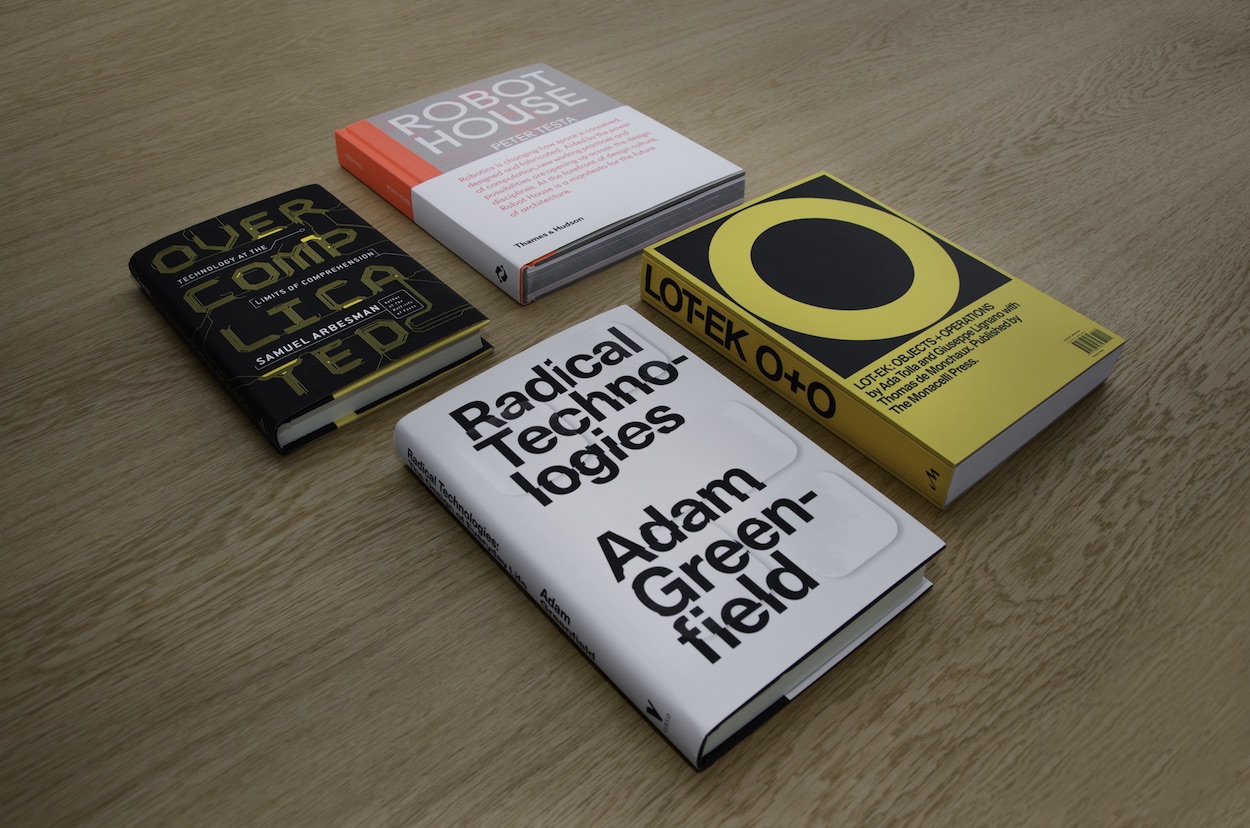Technology promises to simplify and streamline, but it too often requires a Ph.D. to understand. In Overcomplicated: Technology at the Limits of Comprehension (Current), complexity scientist Samuel Arbesman argues that in order to cope with this new age, we should embrace the chaos. After all, he writes, as these algorithms become more interwoven and abstract, they will take on a dimensions even scientists can’t grasp—not unlike the patterns and forces governing our natural world.
In Radical Technologies (Verso), London-based urbanist Adam Greenfield takes a different stance. Like Arbesman, he explores how Silicon Valley has enmeshed the world in a web of devices and code, but he isn’t as quick to assume that the tech titans have our best interests at heart. Greenfield believes that “the smartphone is the signature artifact of our age,” and urges us to understand its consequences, or else sleepwalk into a future we never wanted.
Architect and SCI-Arc professor Peter Testa is more interested in the physical, built applications of advancing technology. In Robot House (Thames & Hudson), rather than presenting his ideas in text, he turns to a medium he’s far more familiar with: the visual. Testa offers a 332-page collage of images, screenshots, and renderings, overwhelming the reader with a vision of the not-so-distant future of building and materials.
For those who wonder if these advances and a healthy environment can coexist, New York studio LOT-EK offers a sliver of hope. Catalogued in LOT-EK: Objects + Operations (The Monacelli Press), the firm’s second monograph, are projects composed of upcycled materials—largely the shipping-container works that LOT-EK is known for. Such structures present the possibility that perhaps humanity’s discarded innovations can save us from the very problems we created.

